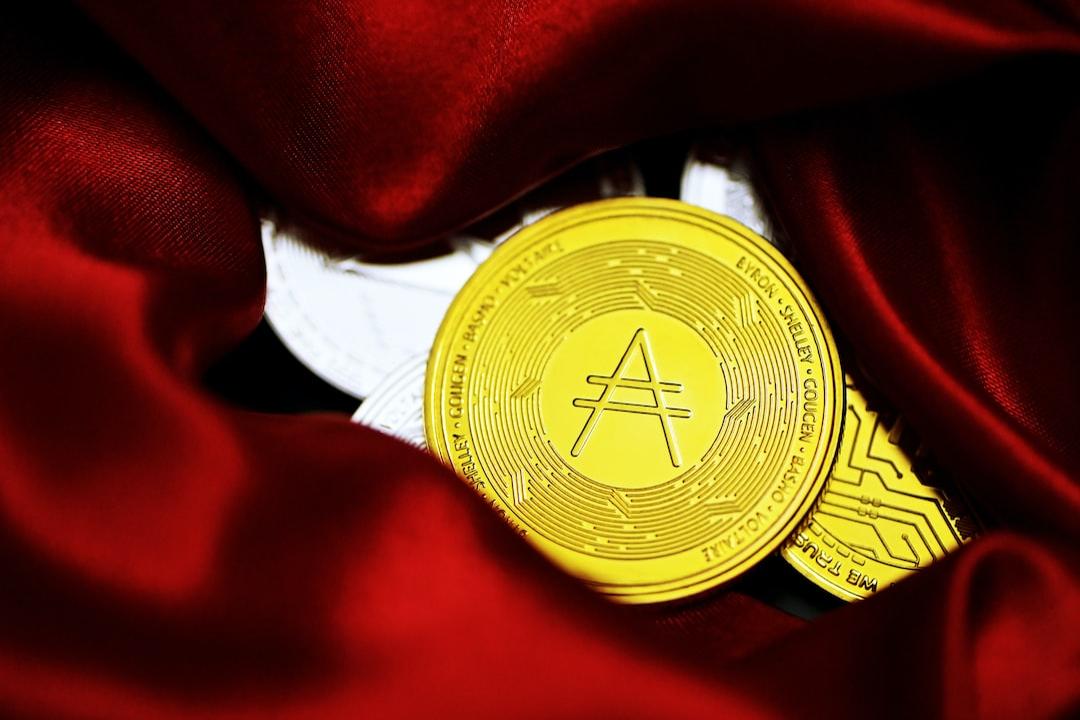Decoding Google’s New Moves: Stablecoins, New Google Play Policies, and Acquiring Stake in Bitcoin Mining Companies
(Background: OpenAI’s Sam Altman: I am interested in acquiring Google Chrome! Competing for the largest market share in the browser war)
(Context: Is the season of altcoins really here? Google searches for “Altcoin” have surged to a seven-year high, primarily driven by African countries)
Google, the global tech giant, is accelerating its strategic layout in the fields of Crypto and AI computing. Recently, a series of its actions have drawn widespread attention: through its AI cloud platform Fluidstack, it has established a partnership with Bitcoin mining company TeraWulf to acquire an 8% stake, Google Play is set to adjust its policies regarding cryptocurrency exchanges and software wallet applications, and preliminary discussions are underway with several cryptocurrency companies about stablecoin integration—these actions highlight Google’s deep involvement in AI computing and the cryptocurrency sector.
How Did Google Acquire an 8% Stake in Bitcoin Mining Company TeraWulf?
TeraWulf Inc. (NASDAQ: WULF), as a vertically integrated zero-carbon digital infrastructure operator, has primarily focused on Bitcoin mining in recent years, recently expanding into high-performance computing. In its Q2 earnings report, TeraWulf noted that it mined 485 Bitcoins at its Lake Mariner facility, generating $47.6 million in revenue, a 33.7% increase compared to $35.6 million in Q2 2024, although the cost of revenue rose from 39.1% in Q2 2024 to 46.4%. However, due to increased investments in high-performance computing and mining-related costs, TeraWulf’s net loss for the first half of the year expanded to approximately $79.79 million. As of June 30, 2025, the company holds $90 million in cash and cash equivalents, along with Bitcoins, and has outstanding debts totaling approximately $500 million.
This partnership with Fluidstack involves two ten-year high-performance computing hosting agreements, intending to provide over 200 megawatts of critical IT load (equivalent to about 250 megawatts of total capacity) at its data center campus in western New York. The facility is specifically designed for liquid-cooled AI workloads and aims to meet the scale, density, and flexibility required for next-generation computing.
From a financial perspective, TeraWulf stated that the agreement represents approximately $3.7 billion in contract revenue over the initial ten-year term, with two five-year extension options that, if exercised, will bring the total contract revenue to around $8.7 billion. The expected net operating income (NOI) profit margin for the site is 85%, generating approximately $315 million in annual revenue.
Google plays a crucial role in this collaboration: not only does it guarantee $1.8 billion in lease obligations to support project debt financing, but it also obtains warrants to purchase approximately 41 million shares of TeraWulf common stock, corresponding to an ownership stake of about 8%, thereby becoming a significant shareholder in TeraWulf. Following the announcement of the deal, TeraWulf’s stock price skyrocketed by 50%, rising from a previous closing price of $5.46 to approximately $8.70, reflecting market optimism regarding the transaction.
TeraWulf CEO Paul Prager stated that TeraWulf is joining forces with world-class capital and computing partners to provide next-generation AI infrastructure powered by low-cost, zero-carbon energy, and this transaction accelerates TeraWulf’s strategic expansion into high-performance computing.
From an industry perspective, many Bitcoin mining companies are diversifying into AI data centers (some Bitcoin miners are also shifting to Ethereum strategies). The core logic behind this transformation is that AI training and inference require substantial computing resources, and the existing infrastructure, such as GPU clusters in mining operations, is highly compatible. Fluidstack, as a GPU provider for AI laboratories (like Mistral AI and Black Forest Labs), further enhances the value of the transaction.
For Google, the core motivation for its involvement stems from explosive growth in AI computing demands: it urgently needs reliable and sustainable computing infrastructure, making the Lake Mariner campus equipped with dual 345 kV power lines, a closed-loop water cooling system, and low-latency fiber connections an ideal choice.
Google Play Adjusts New Crypto Policies
As the core distribution platform for the Android system, the Google Play Store’s policy adjustments directly impact hundreds of millions of users. According to the new regulations, developers of cryptocurrency exchanges and software wallets must obtain local government permission and comply with local laws and industry standards when launching services in specific regions, including Bahrain, Canada, Hong Kong, Indonesia, Israel, Japan, the United Kingdom, the United States, and several EU countries. This policy will officially take effect on October 29, 2025.
Specific regional policy requirements vary, for example:
- Hong Kong: Cryptocurrency exchanges must obtain Type 1 (Securities Trading) and Type 7 (Providing Automated Trading Services) licenses from the Hong Kong Securities and Futures Commission (SFC), while software wallets do not have this requirement;
- United States: Exchange and software wallet developers must register as money service businesses with the Financial Crimes Enforcement Network (FinCEN) and also register as payment institutions in certain states or as federally/state-chartered banking entities;
- United Kingdom: Exchange and software wallet developers must register with the Financial Conduct Authority (FCA).
This update aims to strengthen regulatory compliance but has spurred widespread discussion within the industry. Subsequently, Google officially responded that non-custodial crypto wallets are not subject to the platform’s new policy restrictions. Rich Widmann, head of Web3 strategy at Google Cloud, also confirmed that the policy does not cover non-custodial wallets and noted that the use of the term “software wallet” was not accurate, causing confusion. Rich Widmann also mentioned, “It is no longer 2015; we are working with dozens of dev shops and protocols to build this ecosystem.”
For crypto developers, this policy increases compliance costs. On the other hand, the exemption for non-custodial wallets is seen as a positive signal encouraging innovation in DeFi. In fact, Google Play had previously introduced related policies regarding transparency requirements for mining and distributing tokenized digital assets, as well as NFT gamification mechanisms. For example:
- No applications are allowed to mine cryptocurrency on devices, but applications may remotely manage cryptocurrency mining operations.
- If an application sells tokenized digital assets or enables users to earn such assets, it must declare this through the “Financial Functions” declaration form on the “App Content” page in the Play Management Center. Applications must not promote or exaggerate any earnings that may be obtained through gaming or trading activities.
From the user’s perspective, this policy will enhance security and reduce fraudulent applications. However, users in emerging markets may face application shortages. Overall, this reflects Google’s cautious approach in the crypto domain: supporting innovation while prioritizing compliance.
Google in Preliminary Discussions with Cryptocurrency Companies Regarding Stablecoin Integration
Stablecoins are also attracting the attention of tech giants. In June 2025, according to reports from Fortune magazine citing informed sources, Apple, X, Airbnb, and Google are all in preliminary discussions with cryptocurrency companies about stablecoin integration. These companies may see stablecoins as a means to reduce transaction costs and optimize cross-border payments, marking a shift of mainstream tech firms toward the cryptocurrency sector.
According to Crypto Briefing, Rich Widmann, head of Web3 strategy at Google Cloud, has confirmed that the company is exploring the use of stablecoins on its platform. The author has noted that members of the Google Cloud team frequently express opinions on Web3 and stablecoins on Twitter and have discussed the current applications of stablecoins globally with members of the PayPal team.
Conclusion
Historically, Google’s progress in the crypto field has mainly been reflected in technical infrastructure support, investment layouts, and blockchain technology exploration, yet its strategy has been relatively cautious, often involving indirect participation rather than direct engagement in cryptocurrency business. For instance, through Google Cloud, it provides hosting services for blockchain nodes, invests in multiple crypto-related companies via its subsidiary Google Ventures (such as crypto security platform Blockaid, Helium, Dapper Labs, etc.), and gradually relaxes crypto advertising policies.
Recently, Google’s layout in the fields of Crypto and AI computing has exhibited a multidimensional strategy: ensuring AI computing resources through the TeraWulf transaction; regulating application ecosystems with Google Play policies; and targeting the trillion-dollar payment market in stablecoin discussions.
In the global AI competition, computing resources have become a bottleneck. The transaction between TeraWulf and the AI cloud platform Fluidstack represents an important step for TeraWulf in expanding from crypto mining to AI infrastructure, establishing its position as an AI infrastructure provider, and accelerating its expansion into the high-performance computing sector. For Google, this is not only a stake investment but also a strategic layout to ensure the AI computing supply chain.


